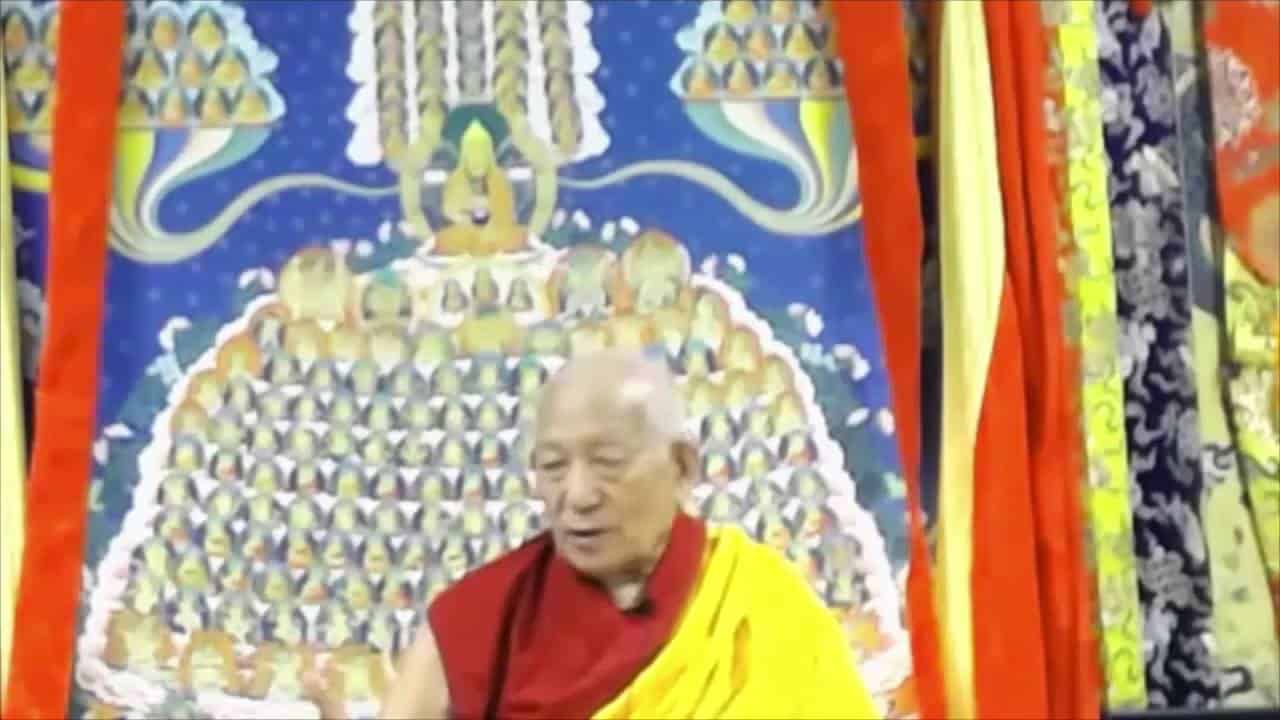Chapter 12: Verses 295-300
Part of a series of teachings on Aryadeva's400 Stanzas on the Middle Way given on an annual basis at Sravasti Abbey by Geshe Yeshe Thabkhe beginning in 2013.
Motivation from Madhamakavatara
In their minds, yogis perceive that all afflictions and all faults
Arise from the reifying view of the perishing aggregates
And, knowing that the self is the object of that view,
They refute the self
- How seeing the self as a dependent arising helps eliminate afflictions and obscurations
- Refutation of production from four extremes: from self, other, both, or neither
- How production takes place by dependent arising of cause and effect
- Those who seek liberation from samsara should not engage in painful practices and forms of behavior
- Pain, birth, and suffering are not constructive but maturation of past destructive karma
- Practice of non-violence leads to higher rebirth while realizing and directly experiencing emptiness of inherent existence, to liberation
- People who cling to their habitual wrong views cannot develop respect to the Buddha’s teachings
- Advising those who seek liberation to adopt valid teachings on non-violence and emptiness
- Positive potential accumulated by listening and explaining the teachings on emptiness
Geshe Yeshe Thabkhe
Geshe Yeshe Thabkhe was born in 1930 in Lhokha, Central Tibet and became a monk at the age of 13. After completing his studies at Drepung Loseling Monastery in 1969, he was awarded Geshe Lharampa, the highest degree in the Geluk School of Tibetan Buddhism. He is an emeritus professor at the Central Institute of Higher Tibetan Studies and an eminent scholar of both Madhyamaka and Indian Buddhist studies. His works include Hindi translations of The Essence of Good Explanation of Definitive and Interpretable Meanings by Lama Tsongkhapa and Kamalasila's commentary on the Rice Seedling Sutra. His own commentary, The Rice Seedling Sutra: Buddha’s Teachings on Dependent Arising, was translated into English by Joshua and Diana Cutler and published by Wisdom Publications. Geshela has facilitated many research works, such as a complete translation of Tsongkhapa’s The Great Treatise on the Stages of the Path to Enlightenment, a major project undertaken by the Tibetan Buddhist Learning Center in New Jersey where he teaches regularly.


